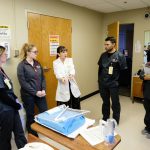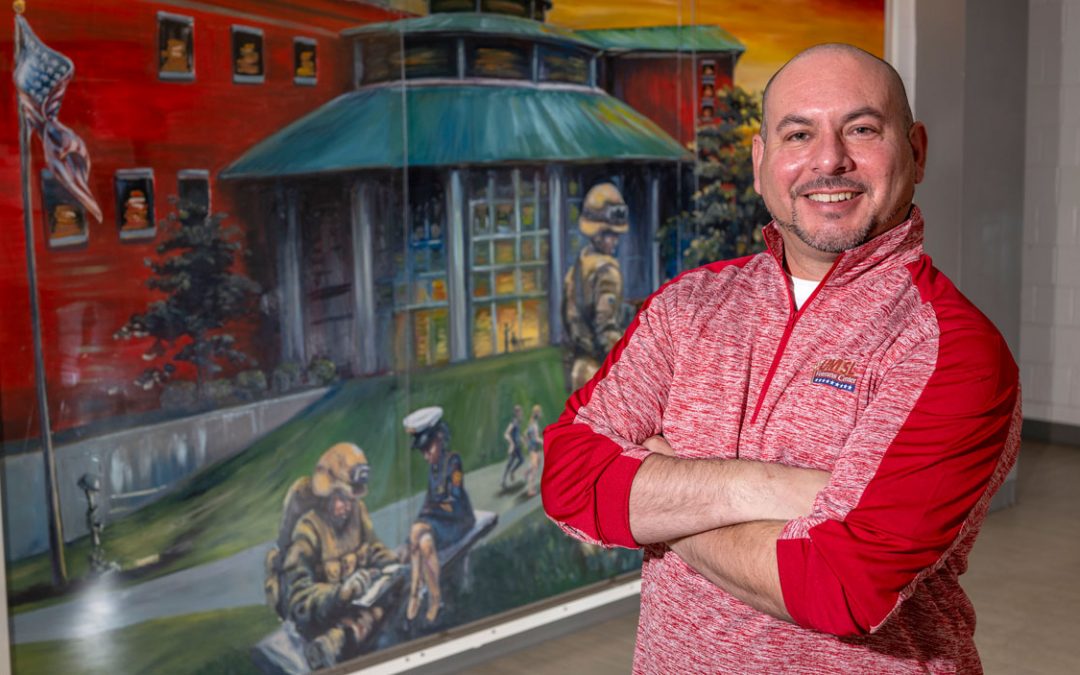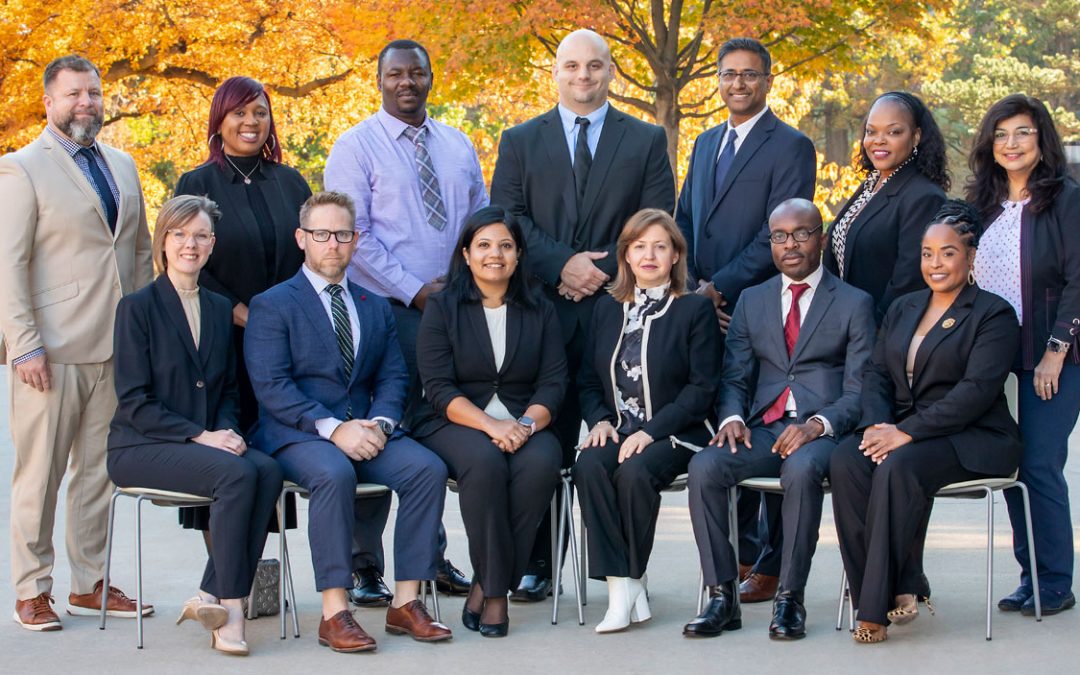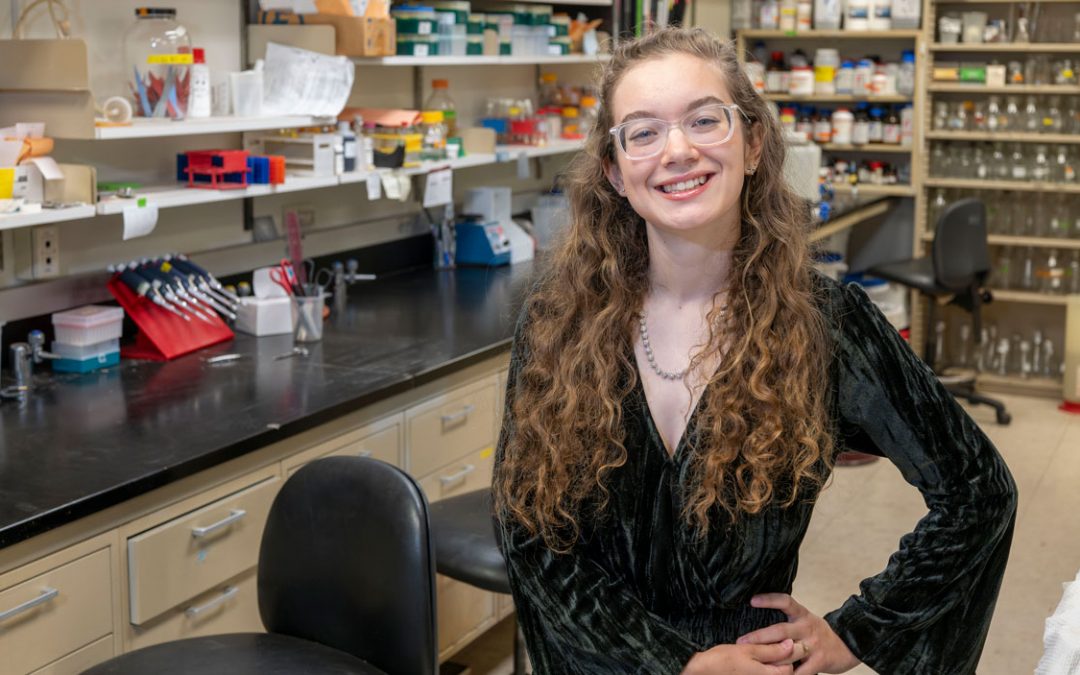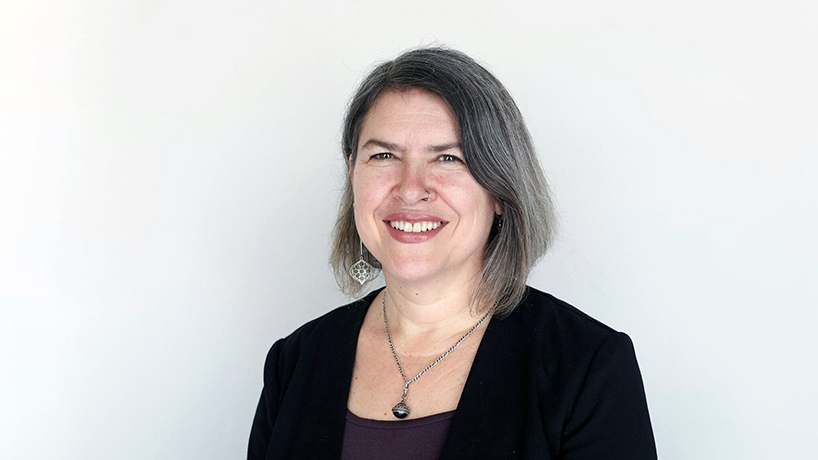
Marlo Goldstein Hode is serving as UMSL’s acting staff ombuds as the university pilots the new position in the 2022-23 academic year. Hode has professional experience in mediation and conflict resolution and is a member of the International Ombuds Association. (Photo courtesy of Marlo Goldstein Hode)
University of Missouri–St. Louis staff members have a new outlet to talk through issues with campus policies or find help resolving disputes with colleagues as the university pilots a Staff Ombuds Office this year.
An ombuds is a designated conflict resolution practitioner who can provide impartial, informal, independent and confidential assistance or guidance with a variety of workplace issues or concerns. It is intended to supplement, not replace, formal channels, including the university’s grievance policy.
 Steven Berberich, Provost and Interim Vice Chancellor for Academic Affairs, and Jill Wood, the interim executive director of Human Resources, have both been supportive of the creation of the new office.
Steven Berberich, Provost and Interim Vice Chancellor for Academic Affairs, and Jill Wood, the interim executive director of Human Resources, have both been supportive of the creation of the new office.
“I am pleased that UMSL is able to provide this service to our staff in need of assistance,” Berberich said. “This would not have been possible without the efforts of Marlo Goldstein Hode, the senior manager for strategic diversity initiatives, who has been instrumental in establishing this office.”
Hode has been tapped to serve as UMSL’s acting ombuds for the 2022-23 academic year. She brings more than 20 years of experience and education to the position, including a doctorate in organizational communication, a Master of Laws in alternative dispute resolution from the University of Missouri–Columbia School of Law, as well as professional experience in mediation and conflict resolution.
Hode, a member of the International Ombuds Association who serves on its professional development committee, had been singing the merits of an ombuds position since she arrived on campus in 2019 after previous jobs at the Association of College and University Educators and the University of Missouri–Columbia.
“I first got interested in ombuds work in 2009, when it was a nascent field in the U.S.,” Hode said. “It’s grown quite a bit since then.”
The University of Missouri–Kansas City already has had an ombuds position for several years, as have several universities in the St. Louis region, including Saint Louis University and Washington University in St. Louis – all part of a group that has been increasing steadily all over the world in the past decade.
The position is launching at UMSL less than a year after Wood and her team held a series of focus groups to hear the concerns of employees about their workplace experience.
Hode is hoping she can be another outlet to help address some of those issues and is excited to see the position take shape at UMSL, though she’s not sure how busy the role will keep her in the year ahead.
“I think a lot of people don’t even know what an ombuds is,” Hode said. “There’s got to be a big educational component before people start using it.”
She plans to host a series of info sessions in September to share information about the services offered and answer questions. As part of the ombuds role, she will also offer conflict resolution workshops to help employees build skills for navigating conflicts more constructively. Information about these sessions can be found on the UMSL Staff Ombuds website.
She hopes staff members will come to her so she can help them work through interpersonal issues and conflicts they may have with supervisors, direct reports or colleagues.
Hode can also be a resource to help staff members navigate policies that are affecting them at work, listen to ethical concerns they might have and develop solutions if they’re managing a heavy workload or confronting burnout.
“The ombuds provides a sounding board for people just to kind of download and talk things through,” Hode said. “But then also, if they are interested, I can help them look at some different possible options to respond and address the issue. That could be conflict coaching, or it could be something more like a mediation. The ombuds could act as a mediator, not as part of formal processes, but informal or facilitated discussions, things like that.”
She can also provide guidance should an individual wish to register a formal complaint.
Hode will keep conversations confidential and won’t participate in investigations or keep written records of cases. The only exception will be if there’s a threat of imminent harm or the conversations involve a violation of Title IX or equity policies because she will remain a mandated reporter.
“Right now, this pilot program is just additional responsibilities under my current role, but I suspect that it could be a full-time position at some point,” Hode said. “The idea is that after we pilot this program, get feedback, see the impact, my hope is that the value will be clearly demonstrated, and the university will want to continue it. Then my recommendation is they institutionalize the position and do external and/or internal search for a full-time ombuds.”










